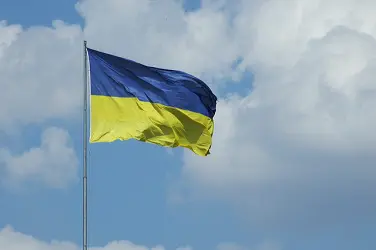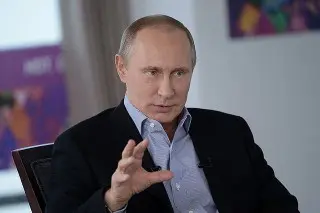Article by Stephan De Spiegeleire
For a project proposal we’re working on, I’m evaluating Integrum World Wide – an online aggregator of Russian media sources. One of the services they offer is the ability to compare trends over time in the relative occurrence of several user-defined search terms throughout various collections.
To get a better feel for what the system offers, I decided to run a comparison of how many Russian publications in the central Russian press use the term ‘в Украине’ (a more modern version of ‘in Ukraine’ that – also Russian-speaking – Ukrainians now prefer) as opposed to ‘на Украине’, which is the term everybody (also I) learned in school. Some forward-leaning Russians have now (as I) transitioned to the now politically correct в Украине. This is very much like how ‘The Netherlands’ insist on using the ‘The’ in their country name; or to how ‘Ukraine’ or ‘Congo’ or ‘Lebanon’ insist on no longer using the ‘The’ that we used to use. To many of us, this may seem trivial. It does not to the countries in question. My own personal thinking on this: it seems to be a big deal to them; it’s not a big deal to me: so just as I learned to say ‘the Ukraine’, I can now very easily start saying Ukraine, if my Ukrainian friends and colleagues seem sensitive to this. So that’s what I did.
But so examining the differences between these two ways of saying ‘in Ukraine’ in Russian provide a very easy way to empirically gauge how sensitive Russians are towards Ukrainian sensitivities.
Photo credit: Vladimir Yaitskiy via Foter.com / CC BY-NC-SA





